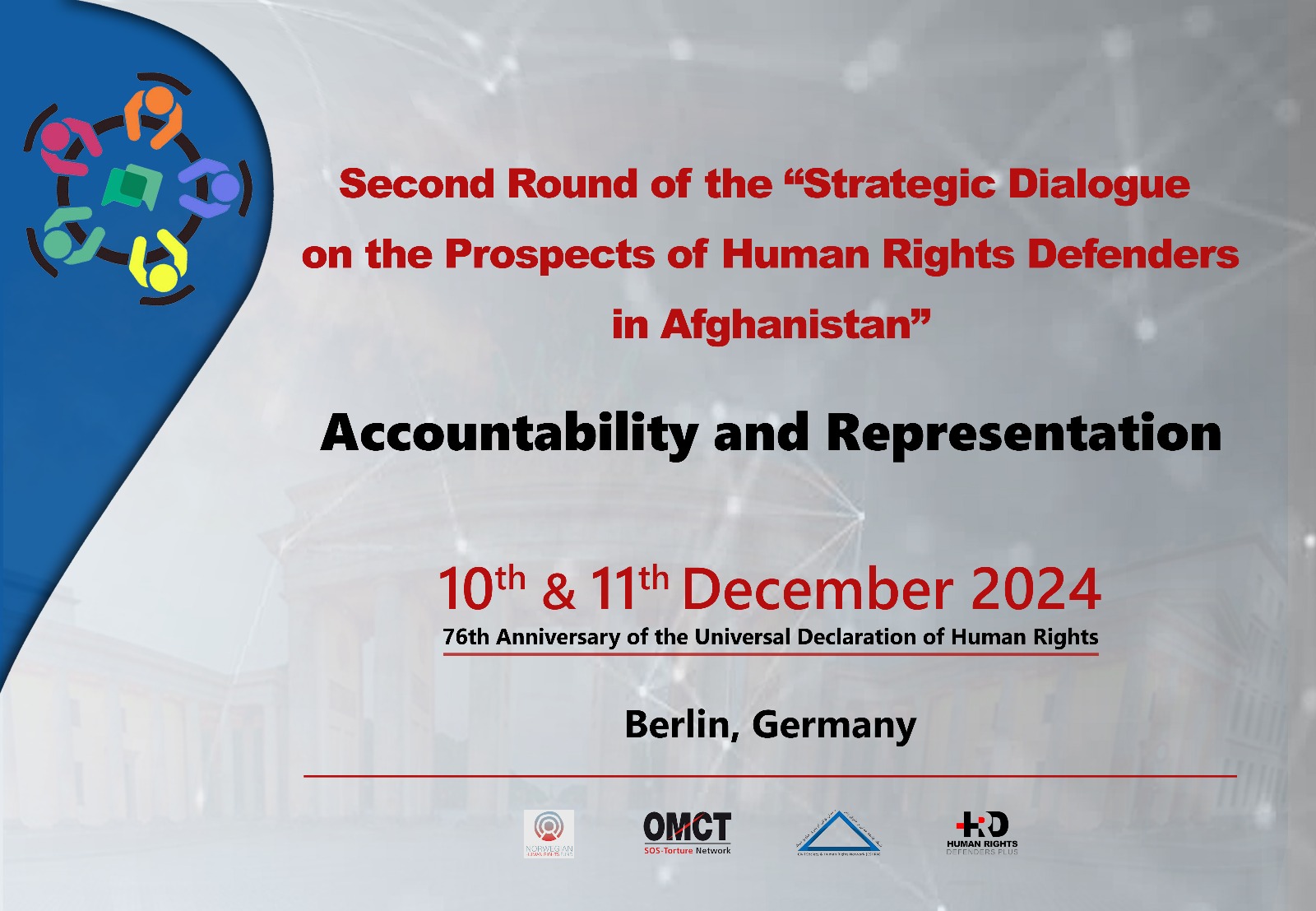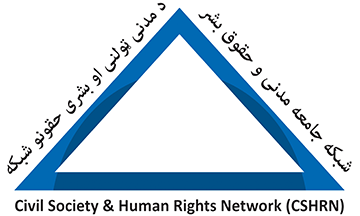Prospects of HRDs in Afghanistan 2nd Round of the Strategic Dialogue of Afghan HRDs Berlin, Germany
The 2nd Strategic Dialogue of Afghan Human Rights Defenders (HRDs) in Exile, themed “Prospects of HRDs in Afghanistan: Accountability and Representation,” was held on December 10–11, 2024, at the Mercure Hotel MOA in Berlin. Coinciding with International Human Rights Day, the event brought together 64 confirmed in-person participants and 43 confirmed online attendees, who faced challenges of security and internet connectivity. The participants included Afghan HRDs, international stakeholders, and advocacy experts. This event served as a critical platform to assess the state of human rights in Afghanistan, foster collaboration among activists, and develop actionable strategies to address ongoing challenges. Through keynote speeches, interactive dialogues, and working group sessions, the conference addressed accountability mechanisms, advocacy strategies, and the vital roles of HRDs both within Afghanistan and in exile. Panels centered on key themes and facilitated dynamic discussions among leading voices in the field. Ms. Atefa Tayeb, warmly welcomed the participants and expressed gratitude for their commitment to advancing human rights. Ms Tayeb emphasized on the current human rights situation in Afghanistan under Taliban rule, highlighting the erosion of fundamental freedoms and the persistent threats to human dignity. Ms. Nagina Yari presented a comprehensive one-year progress report from the Human Rights Defenders Plus HRD+. Ms. Yari highlighted achievements such as the establishment of working committees, enhanced collaboration with international organizations, and the preparation of multiple reports on the human rights situation in Afghanistan. Mr. Richard Bennett, the UN Special Rapporteur on the situation of human rights in Afghanistan, delivered a message that reaffirmed the UN’s commitment to supporting Afghan HRDs and introduced critical initiatives. Panel 1: Afghanistan’s International Obligations and AccountabilityThis session explored how the international community can support Afghanistan in meeting its human rights commitments. Panelists examined strategies for advocacy and potential enforcement mechanisms to ensure compliance. Interactive Dialogue…


